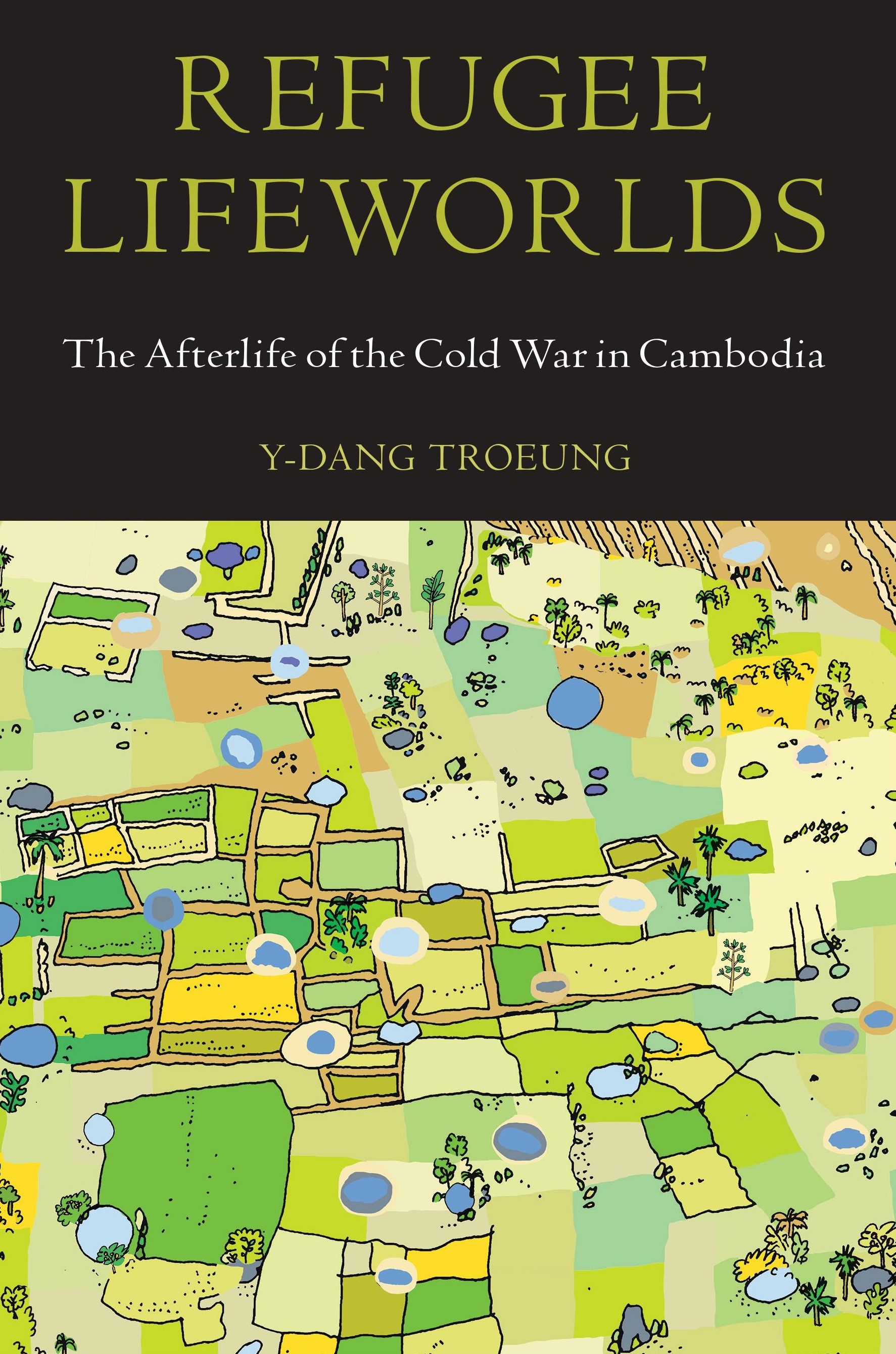Refugee Lifeworlds: The Afterlife of the Cold War in Cambodia
By exploring key works that emerge out of the Cambodian refugee archive, Refugee Lifeworlds: The Afterlife of the Cold War in Cambodia recasts the U.S. bombings of Cambodia and the subsequent genocide as a crucial, yet still unacknowledged, part of the twentieth-century global Cold War. Refugee Lifeworlds draws upon both history and lived experiences by blending scholarly analysis with fragments of family anecdotes, crafting a form of autotheory that seeks to address the gaps in knowledge where conventional academic language fails. In so doing, Refugee Lifeworlds routes questions about disability and refugee personhood through the afterlife of war and genocide in Cambodia, centering Khmer epistemologies such as the kapok tree as transformative forms of refugee knowledge.
In aiming to understand the U.S. bombing of Cambodia and the subsequent genocide as a crucial part of the Cold War and its afterlife, Refugee Lifeworlds explores and experiments with what the category of the refugee can do rather than what it is through the works of contemporary refugee artists, filmmakers, and authors. Refugee Lifeworlds thus interrupts the conventional expectations of non-fiction writing and experiments with a method of autotheory that melds theory, autobiography, and criticism. Refugee Lifeworlds seeks to shift from the language of trauma as an individual, knowable impairment, to a notion of disability that emerges through the work of disability writers who understand disability as both a lived embodiment and as a system of differential impairment of racialized and gendered bodies.
In aiming to understand the U.S. bombing of Cambodia and the subsequent genocide as a crucial part of the Cold War and its afterlife, Refugee Lifeworlds explores and experiments with what the category of the refugee can do rather than what it is through the works of contemporary refugee artists, filmmakers, and authors. Refugee Lifeworlds thus interrupts the conventional expectations of non-fiction writing and experiments with a method of autotheory that melds theory, autobiography, and criticism. Refugee Lifeworlds seeks to shift from the language of trauma as an individual, knowable impairment, to a notion of disability that emerges through the work of disability writers who understand disability as both a lived embodiment and as a system of differential impairment of racialized and gendered bodies.

Publisher
Temple University Press
ISBN
1439921768
Publication date
1 Jan 2022 – 30 Nov 2022
Specialisation
Humanities
Theme
Society
Media
Literature
Art and Culture
Diasporas and Migration
War / Peace
Region
Global Asia (Asia and other parts of the World)
Inter-Asia
Southeast Asia
Cambodia